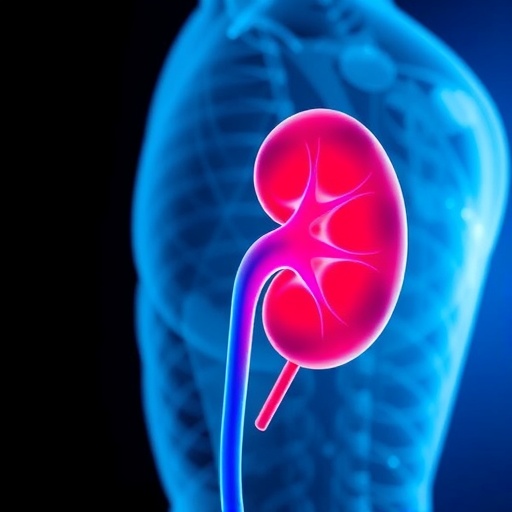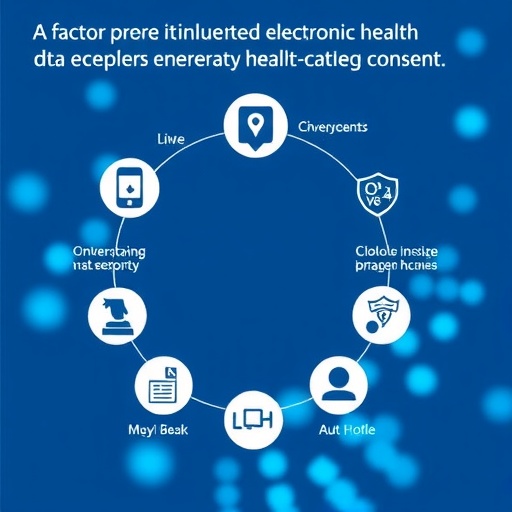
In the landscape of modern medicine, kidney transplantation stands out as one of the most significant achievements, offering a renewed lease on life for countless patients suffering from end-stage renal disease. However, the path toward successful kidney transplantation is fraught with challenges, particularly concerning rejection and infection. Addressing these complications has spurred researchers to explore innovative pharmacological interventions. In a groundbreaking study, El Chediak, Levea, and Wojciechowski have delved into novel drug strategies, proposing a radical shift in how immunosuppressive therapies could be optimized for improved patient outcomes. This study not only paints a picture of current developments in transplantation pharmacology but also outlines critical avenues for future research.
The authors of this pivotal research paper have combined their expertise to evaluate the inherent complexities of treating kidney transplant patients. They emphasize that a one-size-fits-all approach to immunosuppression often leads to suboptimal outcomes. Individualizing therapy based on patient-specific factors such as genetic predisposition, age, and existing comorbidities has emerged as a fundamental principle in modern transplant medicine. As such, the research is timely, aligning with the growing recognition of personalized medicine, which seeks to tailor therapeutic strategies to improve efficacy and minimize side effects.
An essential aspect of this study involves understanding the balance between immunosuppression and immunity. The authors highlight that successful transplantation hinges on achieving an equilibrium where the body is adequately immunosuppressed to prevent rejection of the foreign organ, yet still retains sufficient immune function to fend off infections. Historically, high doses of steroids and other immunosuppressants have been the norm; however, this approach often leads to significant adverse effects, including an increased risk of infections, cardiovascular diseases, and even malignancies. The study draws on emerging research that discusses the implementation of low-dose drug regimens to strike a more favorable balance in immunosuppression.
Alongside traditional immunosuppressive agents, the study shines a light on the role of monoclonal antibodies in enhancing transplant outcomes. These biologic agents can specifically target immune pathways, leading to a refined control of the immune response. The authors underline the importance of these newer drugs, noting their potential to reduce the overall burden of immunosuppression while maintaining graft viability. This paradigm shift could not only improve patient quality of life but also decrease the healthcare costs associated with complications arising from conventional immunosuppression.
Emerging from this research is a renewed focus on the therapeutic potential of drug-drug interactions that can enhance the efficacy of transplant medications. By carefully coordinating existing immunosuppressants with other pharmacological agents, the authors suggest that we can unlock new synergies that improve patient outcomes. The exploration of combination therapies offers a tantalizing glimpse into a future where transplantation is not only more successful but also more accessible, with fewer barriers to effective treatment.
The researchers also delve into the potential of utilizing existing and widely used medications repurposed for renal transplantation. By looking at drugs that are already familiar to the healthcare community, they propose a pragmatic approach that could expedite the integration of novel treatments into widespread clinical practice. This strategy could mitigate potential delays in drug development while offering immediate benefits to patients requiring kidney transplants.
Furthermore, patient adherence to medication regimens has long been a significant barrier to achieving successful transplant outcomes. The study acknowledges the psychological and social factors contributing to medication non-adherence among transplant recipients. By designing therapies that require fewer pills, minimizing dosing frequency, and utilizing long-acting formulations, the researchers argue that improved adherence could be achieved, thus enhancing graft survival rates and overall patient health.
One particularly exciting avenue presented in this research is the potential for gene therapy in the context of kidney transplantation. The authors explore the concept of employing genetic modifications to enhance the immune tolerance of transplanted organs. By intervening at the genetic level, it may be possible to “educate” the immune system to accept a new kidney as its own, thereby reducing or even eliminating the need for lifelong immunosuppression. While still in the experimental stage, the implications of this approach could be revolutionary, challenging traditional paradigms in transplantation medicine.
As part of their extensive analysis, the authors emphasize the significance of monitoring biomarkers that can predict transplant rejection. Advances in liquid biopsy techniques and biomarker identification could allow clinicians to tailor immunosuppressive therapy more precisely, adjusting medications based on the immune response to the transplanted organ. This proactive approach could drastically minimize the incidence of rejection episodes while ensuring optimal drug levels are maintained, significantly enhancing the long-term success rates of kidney transplants.
In conclusion, the research conducted by El Chediak, Levea, and Wojciechowski underscores the dynamic nature of the field of kidney transplantation. With the challenges of graft rejection and infection at the forefront, their exploration of novel drug strategies offers a beacon of hope for improving patient outcomes. By integrating established treatments with new pharmacological insights and emphasizing individualized patient care, the study paves the way for a new era in transplantation medicine. It is through such innovative research that we edge closer to a future where kidney transplant patients can enjoy longer, healthier lives with fewer complications.
As the journey towards enhancing kidney transplantation continues, the findings presented in this research could serve as a catalyst for further exploration and clinical application. With each advancement, we move one step closer to redefining the potential of transplantation, ultimately changing the narrative for patients around the world.
Subject of Research: Novel drug strategies in kidney transplantation.
Article Title: Novel Drug Strategies in Kidney Transplantation.
Article References: El Chediak, A., Levea, SL. & Wojciechowski, D. Novel Drug Strategies in Kidney Transplantation.
Curr Transpl Rep 12, 23 (2025). https://doi.org/10.1007/s40472-025-00479-3
Image Credits: AI Generated
DOI:
Keywords: Kidney transplantation, immunosuppression, monoclonal antibodies, personalized medicine, drug-drug interactions, gene therapy, biomarkers, medication adherence.
Tags: challenges in kidney transplant outcomesend-stage renal disease treatment innovationsfuture research in transplant pharmacologyimmunosuppressive therapy optimizationindividualizing immunosuppression therapyinnovative drug strategies in transplantationkidney transplantation advancementsnovel approaches to kidney transplant complicationspatient-specific factors in transplant therapypersonalized medicine in kidney transplantspharmacological interventions for transplant rejectiontransforming kidney transplant success rates




